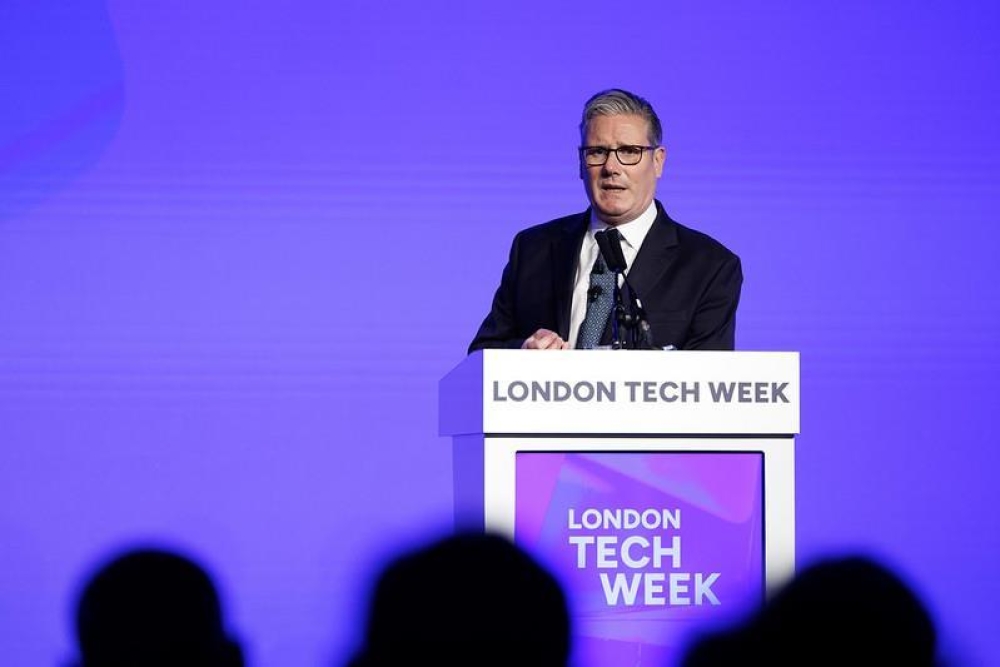The PM at London Tech Week: threading the needle of adoption and regulation
10 Jun 2025

Prime Minister Keir Starmer opened London Tech Week, evangelising for artificial intelligence in the delivery of "immediate" public value. Speaking at Olympia London, he emphasised that AI should not be treated as a distant promise but as a practical tool to improve lives today—speeding up diagnoses in the NHS, tailoring educational content to individual learners, and cutting red tape across government.
At the heart of his address was the launch of the UK Sovereign AI Industry Forum, established in partnership with NVIDIA and backed by a £1.5 billion commitment to expand domestic compute capacity twenty-fold. Founding members, which including BAE Systems, BT, Babcock, National Grid and Standard Chartered, have pledged to build a resilient in-country infrastructure, ensuring the UK is an “AI maker, not an AI taker”. Starmer described this investment as “a huge vote of confidence” in Britain’s research ecosystem and start-up community.
Complementing infrastructure development, the Prime Minister unveiled the “TechFirst” skills initiative: a £185 million programme embedding AI and computational thinking in secondary schools, alongside university conversion courses in machine learning. An industry-led scheme will retrain 7.5 million workers by 2030, addressing acute shortages in data science and AI engineering. Starmer noted that closing the skills gap is “one of the great worries for working people," positioning education as the foundation of a sustainable AI economy.
Starmer also detailed the government’s own AI adoption through “Extract,” an in-house digital assistant that applies natural language processing to planning applications. Early trials in councils at Exeter, Westminster, Nuneaton and Bedworth suggest Extract can process up to 100 documents per day, which is twenty times the existing rate. This will free planners to focus on complex decisions. To support rollout, government will allocate an extra £1 billion to compute power and fast-track lab and data-centre construction via reforms in the Planning and Infrastructure Bill.
However, the UK’s dual approach—leveraging partnerships with global tech firms such as NVIDIA, Google (which powers Extract with its Gemini model), and Amazon, while simultaneously drafting a robust regulatory regime—raises important questions. Ministers have delayed the AI Regulation Bill to develop a more comprehensive framework, underscoring the tension between attracting investment and safeguarding public interest.
The DMA continues to work closely wth the government on data and AI issues. Across two administrations, the DMA has worked closely with Ministers, departmental officials and Parliamentarians to shape the Data (Use and Access) Bill in support of responsible, data-driven growth. Its Director of Policy and Compliance, Chris Combemale, chaired the Secretary of State’s Business Advisory Group; DMA-hosted roundtables have enabled members to engage directly with government, and several peers in the House of Lords have championed DMA-proposed amendments during debates. These collaborative efforts are driven by input from DMA members and have ensured that the Bill balances innovation with privacy while embedding the customer-first principles of the DMA Code.

Please login to comment.
Comments